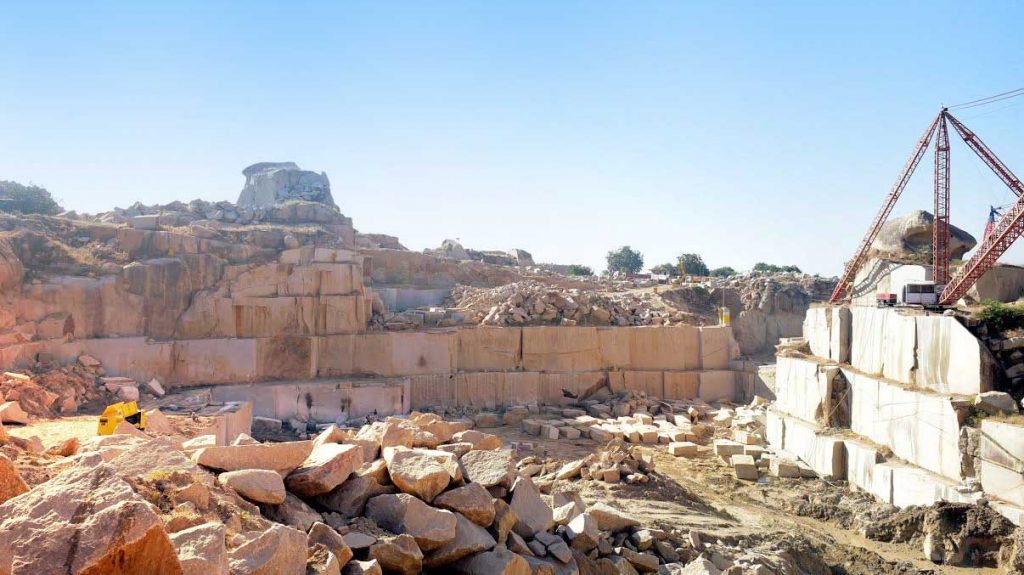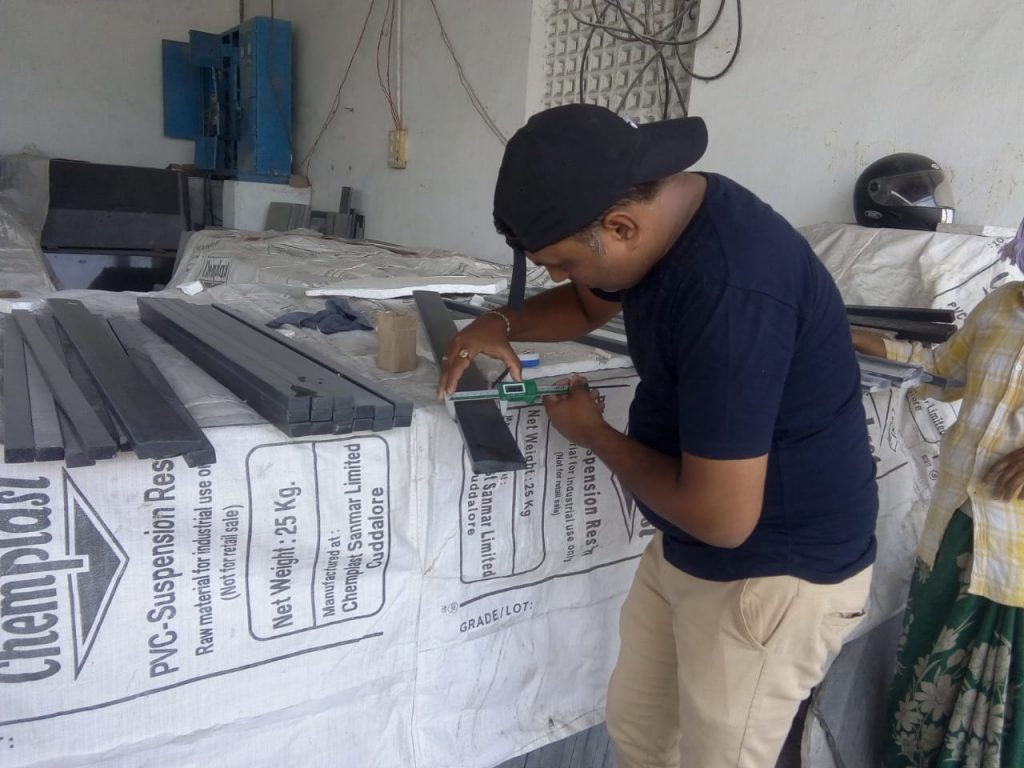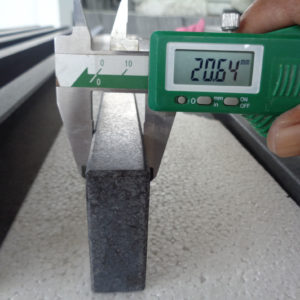Blog
The Importance of Quality Control in Granite Industry
The use of natural stones like granite is quite prevalent in both residential and commercial building construction due to the amazing look and sturdiness the stone offers. Apart from this, granite’s ability to resist regular wear and tear like scratches, chips, stains makes it a great choice in the architectural landscape. Though different types of granite can be imported from various parts of the world, the most important thing is to get high quality one. And this is where quality control plays an indispensable role in ensuring the delivery of great quality granite slabs.
For a granite importer in the USA or UK, it is necessary to ensure that the received material is of desired quality and not an ordinary one. Here, it is important to note that quality assurance starts from the stage when a granite block is extracted from the quarry to the final cutting and polishing. So, from a granite supplier’s point of view, quality control remains an inherent part of granite manufacturing and processing. This is because if paid attention at the beginning, it results in a fine quality granite slab being sent to the buyer.
Granite Quarrying

Before we delve deeper into the topic, it is necessary to understand the not all granite blocks are of superior quality. Some may have dents, and defects that become clearly visible at the time of slab or tile installation. There is no point in using a defective granite slab as it would distort the overall look and performance of your construction project, if not now, a few years later. The extracted granite should be free from defects right from the beginning. Most visual defects can be seen through a detailed inspection of the block. The blocks with impurities like cracks, chips, pinholes, and patches are usually considered low quality and graded accordingly. This kind of check comes under the purview of pre-production quality control.
A reputed granite supplier always pays closer attention to different types of defects during inspection like broken edges, fissures, scratches, swirl marks, chipped edges, repairs, etc.
There are various tests that are done to ensure that the extracted granite block is of superior quality. For example, it is necessary to check the strength specifications of a granite block:
- The overall compressive strength should not be less than 1000 kg/cm2 during the test
- The specific gravity should not be below 26
- The water absorption rate should not be over 0.50 percent during testing
When it comes to defining standards for blocks for stonework, it is necessary that block dimensions are precise and tolerance is allowed f5 mm for facing blocks. For example, if you are buying Indian granite, the Indian Standards Institution (ISI) certification ensures that you get granite blocks or slabs that have undergone a thorough inspection, testing, and rigorous quality checks. During the quarrying process of the granite, quarry managers mark almost every granite block with some kind of identification mark or initials.
Processing

Quality becomes an eminent factor during the process phase of granite stone. From its size to the surface texture, stain, and other visible defects, each granite slab is checked thoroughly to grade the same. Some of the look-based quality checks are:
- Material Appearance Check – Color, texture, lines, stains, consistent crystals, grain pattern, etc.
- Other Defects Check – Scratches, cracks, fissures, wrecked edges, pinholes, chip edges, , swirl marks, repairs, etc.
- Surface Finishing Inspection – Polished, antique, honed, flamed, bush-hammered, tumbled, natural cleft, lepatora, bevel edge, etc.
- Other Production Checks – Level of polish, flatness, and angle of direct edges.
Size and Specification Inspection
Depending on the order taken, a granite supplier should ensure that the length, width, and thickness of granite slabs lie within the stipulated range defined by the buyer.
This kind of check is carried out by a manual inspection of the slabs one by one. It is inclusive of a strict check of the size, color, finish of the slab. Most Indian granite suppliers adopt the widely accepted quality control practices as per ISO 9000 standard.
Let’s take a detailed look at the quality control practices at every step of order processing.

1. Thes process of quality granite commences right before the confirmation of the order. The sample pieces are prepared to match the exact color and pattern asked by the buyer. The purpose is to take the buyer’s approval on a specific price before moving ahead. The quality parameters are also fixed at this stage with size acceptance usually being ± 1mm, thickness variation being ± 1mm and right angle being perfect ninety degrees (90).
2. In the next age, the granite quality inspectors responsible for quality checks get a copy of the exact requirements made by the client. Quality inspectors are found to use different measuring instruments like Vernier scale, right angle, rulers, measuring tape, etc. during field visits which help them take precise measurement of the slab.
3. Quality should reflect in the sample product which is sent to the client for approval. Therefore, it is necessary to ensure that the sample is being taken as per the client’s exact specification. If not, the factory staff are trained for the same, and machines are calibrated accordingly to get the desired results. Inspections are carried at 10%, 50%, and 100% levels of production. Inspection reports are sent to the head office. If any factory is not able to meet the quality standard post-production, the order is canceled at the 10% stage and sent to another factory.
4. Besides the inspection report, the head office gets pics of the desired product. This is when the planning for crate manufacturing begins and its quality must be approved by the inspectors.
5. Once the production is done, the field inspector sorts the material and packing is done. The chief quality officer inspects a few samples of the product and submits the report to the head office. This is to ensure seamless product quality across different stages of granite extraction and processing.
From the above steps, it becomes clear that the role of quality control is quite high and this is where Indian granite suppliers carry an edge as they pay utmost attention to the quality of their granite slabs at every stage of granite processing and transportation.
